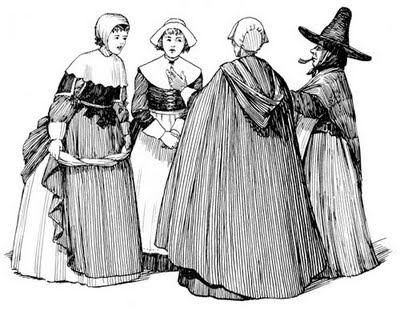
Along with the notes in Weeley’s register showing that people having civil marriages during the Commonwealth were sometimes backing it up with a church wedding afterwards, there’s something else intriguing about the register at that period.
We’re used to seeing marital statuses for women such as single woman, spinster, widow or maiden (How sure they were of that…? Ahem), but Weeley’s earliest register throws a new one into the mix: the double woman.
So, on 28th April 1639, little Boone, the illegitimate child of Elizabeth Aughton and Richard Boone was baptised in Weeley. Richard, we’re told, was a married man, and Elizabeth is a “double woman.” Not a single woman, as I expected, but a double woman.
There are two more “double women” in the marriage register:
- Mary Gardner is a “double woman” on her marriage to Robert Harris in 1622
- Bridget Jues is a “double woman” when she married Jeremy Brewer (single man) on 23rd November 1643
But there’s no “double women” in the burial register.
What’s going on? Perhaps over a twenty year period in Weeley there were three sets of female conjoined twins? Erm… I think not.
I think the first example gives us a clue. Like a double agent, there’s something devious about the “double woman”, and it’s an indication of her morality. Were Richard and Elizabeth living together, even though he had a wife tucked away elsewhere? Had Richard deceived her? But Elizabeth had another illegitimate child in 1643, called Jeffrey, and this time the vicar didn’t hide behind a term like “double woman” – he decided to call a spade a spade, or in this case, called Elizabeth a harlot, in the baptism register.
As for Mary Gardner and Bridget Jues, we might suppose that although there’s no illegitimate children attributed to them in the baptism register, they had slipped somewhat in the vicar’s opinion, and so were recorded for all time on parchment as “double women.”
Have you seen “double woman” in a parish register or other document from around the same period? Do let me know if you have.
